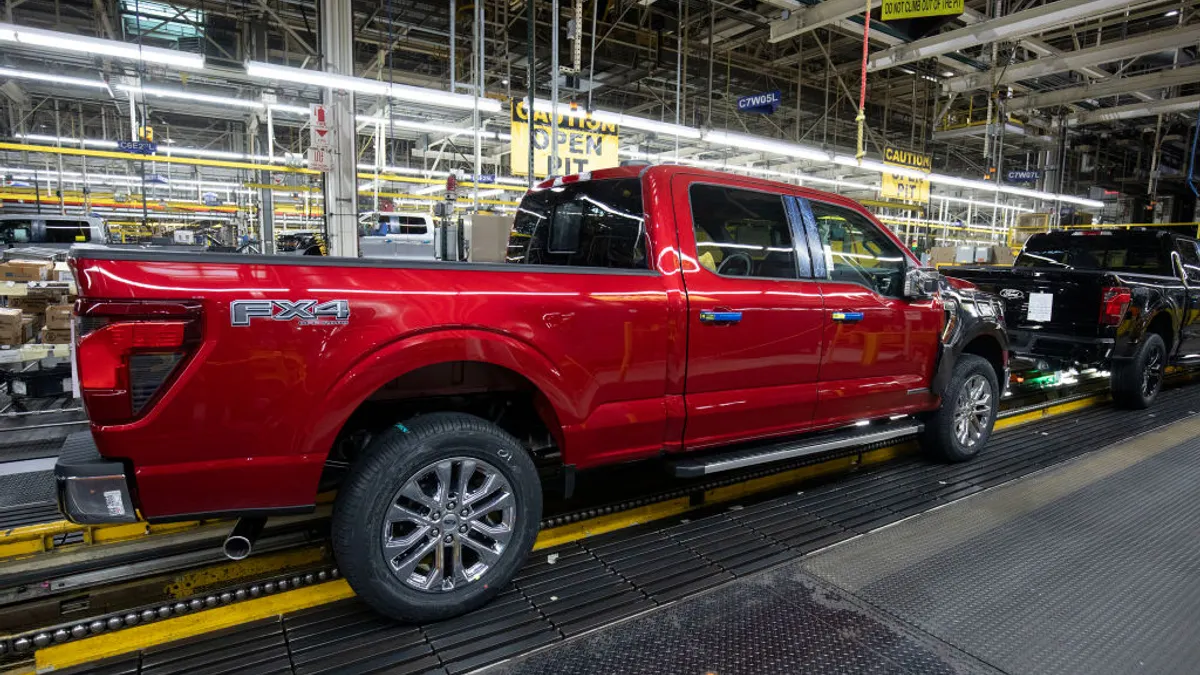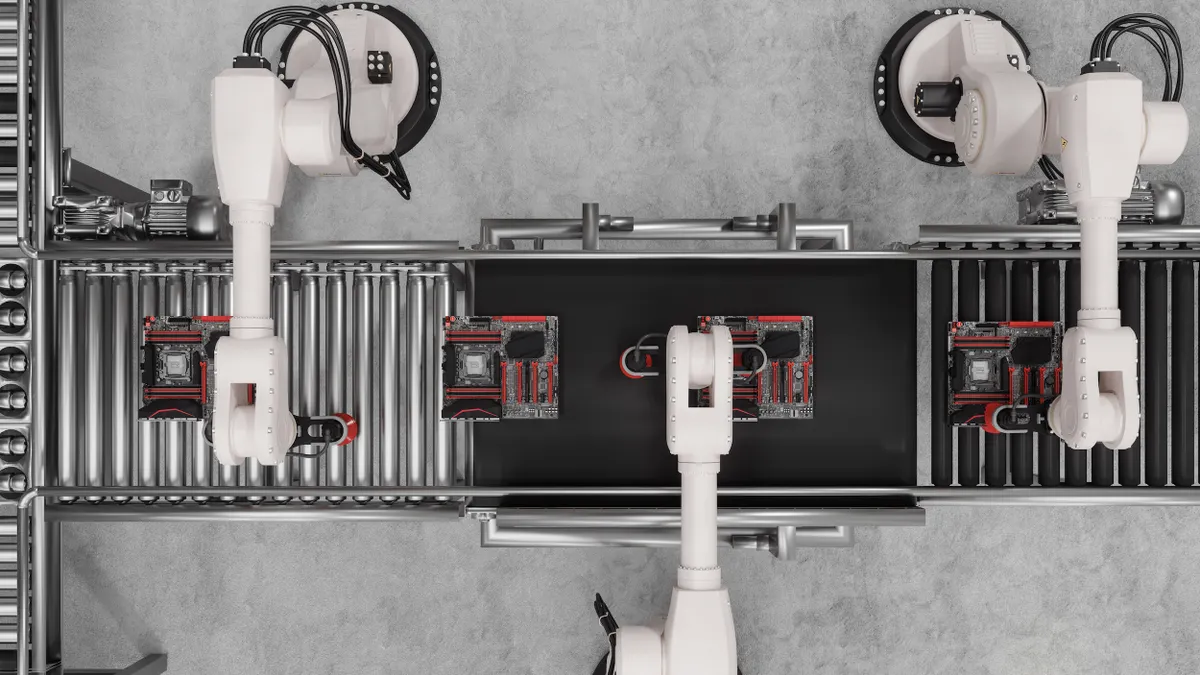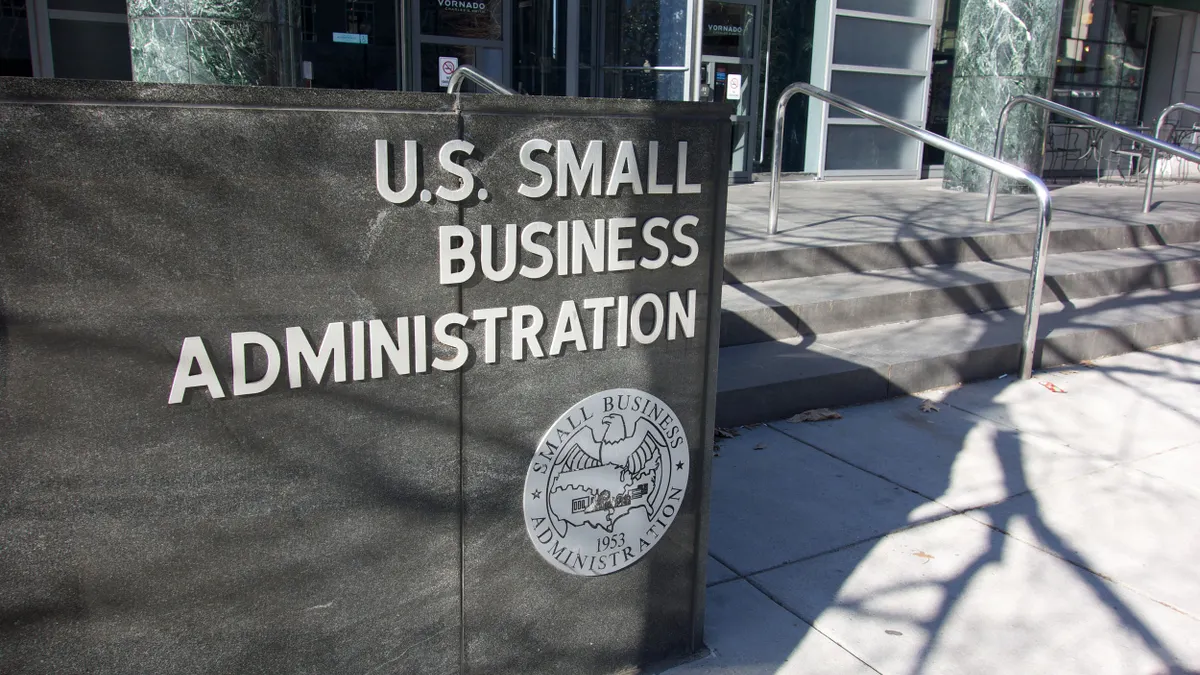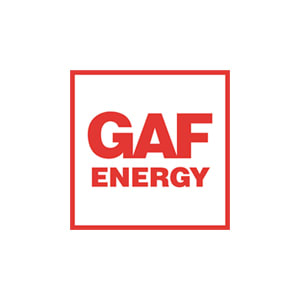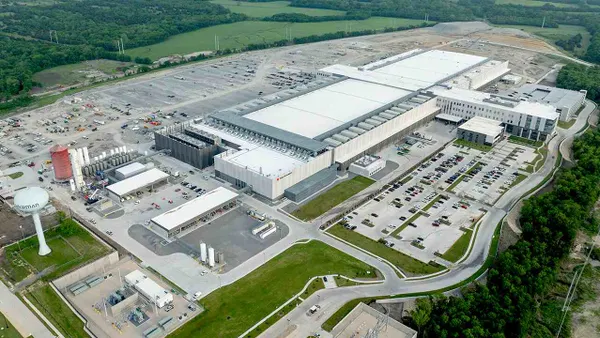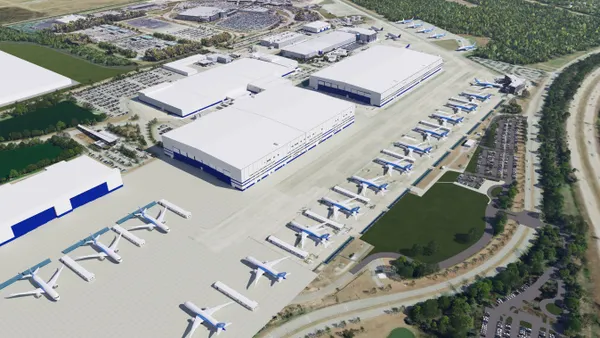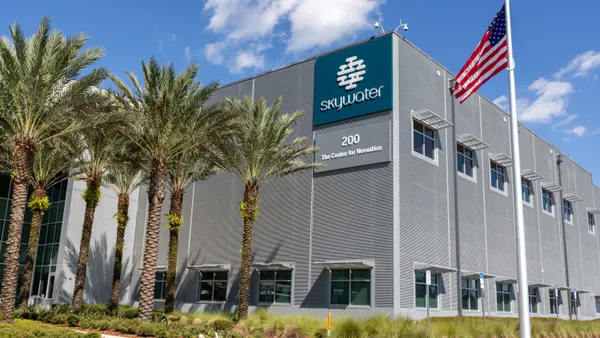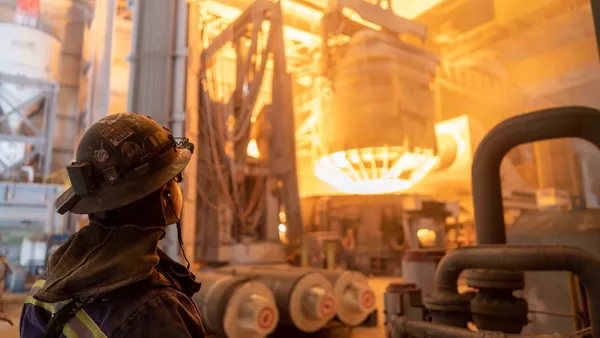Correction: A previous version of this story overstated the fire’s impact on long-term operations. Only the plant’s hot mill will be disrupted for an extended time.
Dive Brief:
- Novelis, a top supplier of aluminum sheets to the auto industry, expects a fire-ravaged piece of equipment in its Oswego, New York, manufacturing plant to remain non-operational until early 2026, a company spokesperson confirmed in an email to Supply Chain Dive.
- A Sept. 16 fire at the factory severely damaged Novelis’ hot mill, leaving the company scrambling to contain the damage to customers, which include Ford Motor Company, General Motors, Toyota Motor Corp. and Stellantis, per a securities filing.
- "We are urgently taking steps to minimize the impact of the recent fire at our Oswego facility on our customers," the spokesperson said. "We have activated Novelis’ global network of plants and are also partnering with industry peers to source material in order to help mitigate the gap in supply."
Dive Insight:
Despite working “around the clock” to restore the hot mill, Novelis did not expect to restart operations for the equipment until “early Q1 of calendar year 2026,” the spokesperson said. Although the disruption will interrupt production at the Oswego plant, the rest of the facility remains open and operating.
Ford accounted for most of the factory's output, according to Stephanie Brinley, associate director of AutoIntelligence at S&P Global. The automaker said it is working closely with Novelis and "a full team is dedicated to addressing the situation and exploring all possible alternatives to minimize any potential disruptions." Ford uses Novelis’ aluminum in its popular F-150 pickup truck.
Meanwhile, General Motors and Toyota Motor did not expect Novelis' troubles to impact their operations significantly. Toyota said it could meet its aluminum needs through alternative suppliers.
Stellantis said it is "taking the necessary actions to mitigate any potential impact on our ability to deliver vehicles to our customers.”
Disruptions to Novelis' production could impact carmakers because the manufacturer accounts for 36% of the global market for aluminum to the auto industry, according to the company's securities filing.
With so much aluminum coming from Novelis, automakers might have to shift current aluminum supplies between models, depending on customer demand, while seeking alternative sources, per Brinley.
"It may be difficult and it may be expensive to find alternative sources, but we do think that will be the first effort that they make, and cutting production will be the thing that they do last," Brinley said.
Automakers could also lean on aluminum imports from outside the U.S. However, with such imports currently facing 50% tariffs, companies may opt to ask the U.S. government for a temporary exemption, Brinley said. "I don't have any idea if that will be successful or not, but that's certainly one of the potential solutions."
Regardless, aluminum costs are likely to go up for automakers temporarily. "We know it's going to be expensive, and we know it's going to be a problem that's going to cause a headache," Brinley said.
The added cost is unlikely to get passed on to consumers because the supply disruption is temporary and not systemic, Brinley said.
"At the end of the day, this is kind of a spot supplier issue," Brinley said. "The industry has seen them before. They're not easy; they're always costly, but it's a spot problem. And by that I mean it comes up, it can be fixed, and it will be resolved."
As an example of a disruption that was eventually corrected, Brinley pointed to a 2018 fire that damaged the Dearborn, Michigan, plant of Meridian Lightweight Technologies, a maker of automotive interiors. The blaze disrupted production of Ford's best-selling F-150 pickup truck and forced the automaker to lay off several thousand workers temporarily.
Editor’s note: This story was first published in our Procurement Weekly newsletter. Sign up here.


